Talking Shop
Candid reflections on the writing life, from me and various colleagues. We talk about the writing process, facing rejection and conquering anxiety, breaking in, making money at writing, understanding the publishing world, and finding a community of peers.
| |
On risk, freedom, discipline
My writing mantra
I don’t remember the year, or the name of the artist, or even whether the exhibit contained paintings or sculpture, but I’ll never forget the name of the show years ago at New York City’s Guggenheim Museum: “Total Risk, Freedom, Discipline.” I immediately copied down the words and later pasted them on my bulletin board. There they still live.
“Total risk, freedom, discipline” has become my mantra. Those four words say more about my daily life as a writer than the empty term “process” can begin to suggest.
| |
Dennis Palumbo on turning anxiety into art
A writer/psychotherapist offers his insight on creativity
An old deodorant commercial once proclaimed, “If you’re not a little nervous, you’re really not alive.”
Pretty sage advice, even though the only thing at stake was staying dry and odor-free. But there is something to be said for accepting—and learning to navigate—the minor turbulences of life. I’m talking here about common, everyday anxiety. The jitters. Butterflies. This is particularly true for writers, whose very feelings are the raw materials of their craft.
Then there are the more virulent writer’s anxieties, shared by few in other lines of work: Your agent hasn’t returned your phone calls. You are three weeks past deadline. You have Act Two problems.
| |
My thoughts on breaking in
Some first steps to finding your path as a writer
When someone asks me how to launch a career as a writer, I always feel flummoxed. I think of what Mark Twain said about his training (“I have never let my schooling interfere with my education”) and about what Picasso said about understanding art (“Why not try to understand the songs of a bird?”). And I think of a stone found many years ago on a beach in Tuscany, when I was walking with the Italian painter who acted as my mentor, imploring him to tell me how to “make it” as an artist. Myriad tiny blue lines scored its cool, jade surface. Any one of those lines, he hinted, might work.
Now, 25 years later, is there any advice I can offer besides a couple of quotes and a metaphor?
| |
Demystifying the book biz
Some pointers if you want to publish a book
When it comes to restaurants, my attitude is “the more the merrier.” Not so with books. Fewer mediocre books in the market would be better for all of us. And I know the heartbreak that many wonderful writers experience when they publish perfectly good books. At the same time, I believe in the life of the mind, and if too many books are discouraged we all will suffer. I want to stoke literary ambition, not stifle it.
So I sat down with some agents and fellow writers and came up with a list of things that anyone contemplating writing a book might want to know—or think about. I’ve focused mainly on “traditional publishing” here, but some of this advice also applies if you are self-publishing.
| |
Bucks & book publishing
Oh, the reality of royalties
If you’re thinking about writing books, it’s helpful to know some of the basics about how much money to expect, how advances work, and when—if ever—you’ll collect royalties. There’s much confusion out there, especially since all we generally read in the press is that Sarah Palin got $5 million for her book, Michelle Obama $65 million for hers.
For starters, forget that advance in multiples of $5 million. Most first-time book authors are lucky to get $50,000. (And at a small house or academic press, $5,000.) Any advance that is six figures is considered strong. In these tentative times, you have to be a pretty big celebrity—or an author who’s already got a track record of producing bestsellers—to earn in the sevens.
| |
Good grief: Seven stages of manuscript drafts
Seven discrete stages of manuscript grief can lead to ultimate success.
I don’t suffer writer’s block.
When I sit down to get ideas out of my head and onto the page, I am full of excitement and, well, hot air. It’s what happens next that causes me trouble. I’ve come to identify—with apologies to Elisabeth Kübler-Ross—seven discrete stages of manuscript grief, each reflected in its own draft.
| |
Confessions of a hybrid author
Why would a bestselling author with a national profile (um, that would be me) decide to dip a toe into new ways of publishing books?
It was the darkest day of my professional career.
On the surface, things looked good on Aug. 3, 2013. I’d just finished a series that had run on The New York Times Opinionator. I’d signed a contract for a new edition of Sin and Syntax, giving the book a new lease on life. Vex, Hex, Smash, Smooch was due out in October.
But the walls of my particular literary house were closing in on me, fast.
| |
How to thrive as a freelancer
I share the unvarnished truth about how to reach your dreams
| |
Finding a writing collective
Striking a balance between solitude and society
| |
Resources to get you started
Launching a writing life happens one step at a time





